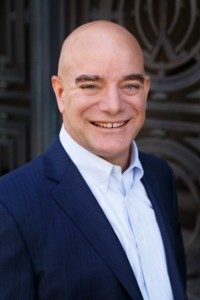
Eric Gibbs
Founding partner of Gibbs Law Group LLP, Eric Gibbs has been selected for the peer-reviewed list of Best Lawyers every year since 2012.
Donning and doffing refers to changing into and out of work clothes, gear, or equipment. To don means to put on work clothes, gear, or equipment. To doff means to take off work clothes, gear, or equipment. In some situations, an employer must compensate its workers for time spent applying and removing clothing or protective gear before and after a work shift.
Federal and state laws both require that employers compensate employees for all “work” performed. However, federal and state law often differ on whether donning and doffing is considered “work.” In general, state law is more likely than federal to treat time spent donning and doffing as “work.”
dependent on your employment situation.
Consider the following questions:
If you answered yes to the above questions, it is more likely that your employer should be compensating for the time you spend changing into your work uniform.
Being required to change into and out of many types of clothing, gear, and equipment, including the following, may entitle you to compensation.
Courts have not set up a clear test under California employment law to determine whether donning and doffing time must be paid in a particular situation. In general, workers who are required to arrive early to their shifts in order to don protective gear or uniforms have a good claim to compensation under California law. California law is more favorable to employees than federal labor law on the subject of donning and doffing.
California law requires that employees be compensated for all time spent on “work.”
Whether donning and doffing is considered “work” depends on the situation, including:
Federal labor law is embodied in the Fair Labor Standards Act (FLSA), enacted in 1938. Initially, the United States Supreme Court interpreted the FLSA quite broadly to include mandatory pay for any donning and doffing. The High Court stated, “the statutory workweek includes all time during which an employee is necessarily required to be on the employer’s premises.”
This decision led to a number of “portal pay” lawsuits, where workers argued that they should be compensated for any time they spent donning and doffing and traveling to their workstations. Portal pay lawsuits essentially argued that workers are on-the-clock the second they cross the “portal” onto the employer’s premises and are off-the-clock the second they leave through the same “portal.”
However, in 1947, Congress passed the Portal-to-Portal Act to ensure that paid time did not run from a worker’s entry to exit. The Portal-to-Portal Act amends the FLSA to specify that time spent doing preliminary or “postliminary” activities is not considered work under the Fair Labor Standards Act.
In interpreting what the Act meant by “preliminary” and “postliminary” activity, the Department of Labor, with its power to interpret the FLSA, created a rule that “changing clothes” and “washing up or showering” would be considered uncompensable “preliminary or postliminary activities” when performed under “normal” conditions. However, the Department of Labor acknowledged that in some situations, changing clothes or washing up might be “so directly related” to and such an “integral part” of the job, that the employer must compensate for it.
In a 2014 case before the Supreme Court, Sandifer v. United States Steel Corporation, steel workers argued that donning and doffing protective gear was not the same as changing clothes, and should therefore be paid time under the FLSA. The steel workers argued both that protective gear was not clothes and that since changing requires swapping one thing with another, putting on protective gear over normal clothes is not considered changing.
However, the Supreme Court rejected both arguments, holding that Congress intended for the legal definition of “clothes” to include “items with some specific work-hazard-related protective function” and that “changing clothes” includes not only substituting some garments for others, but also “altering [one’s] dress.”
As a result of the United States Steel decision, protective gear is treated the same as “clothes” under the FLSA, meaning that it is not protected, except in the narrow circumstance when the donning and doffing is considered an “integral part” of doing the job.
A subsequent 2016 case, Tyson Foods v. Bouaphakeo, had more success.
The Court described the case as follows:
At the trial court level, the case went to a jury, which awarded the Tyson employees $2.9 million in wages for time spent donning and doffing.
Tyson appealed the case up to the Supreme Court, on the grounds that its employees were forced to rely on an expert witness to estimate the average time spent donning and doffing, since Tyson did not keep time records for donning and doffing. The expert had estimated that workers spent an average of 18 minutes a day donning and doffing in the cut and retrim departments and 21.25 minutes in the kill department. The Supreme Court upheld the $2.9 million jury award, finding that it was permissible for the Tyson employees to rely on estimated averages in determining how long they spent donning and doffing.

Founding partner of Gibbs Law Group LLP, Eric Gibbs has been selected for the peer-reviewed list of Best Lawyers every year since 2012.

An employment-law litigator with over 20 years’ experience, Steven Tindall is well-acquainted with the intricacies of overtime law. His largest recovery in a single employment case is $29 million.

Prior to joining us at Gibbs Law Group LLP, Linda Lam worked at a national employment law firm, where she represented workers in lawsuits to recover unpaid wages and benefits.

Steve has prosecuted a variety of complex employment cases involving misclassification of independent contractors. He is fluent in English and Spanish.
Gibbs Law Group LLP is consistently ranked on U.S. News’ list of “Best Law Firms.”
The attorneys in our employment law practice have all be selected as 2018 Northern California Super Lawyers or Risings Stars.